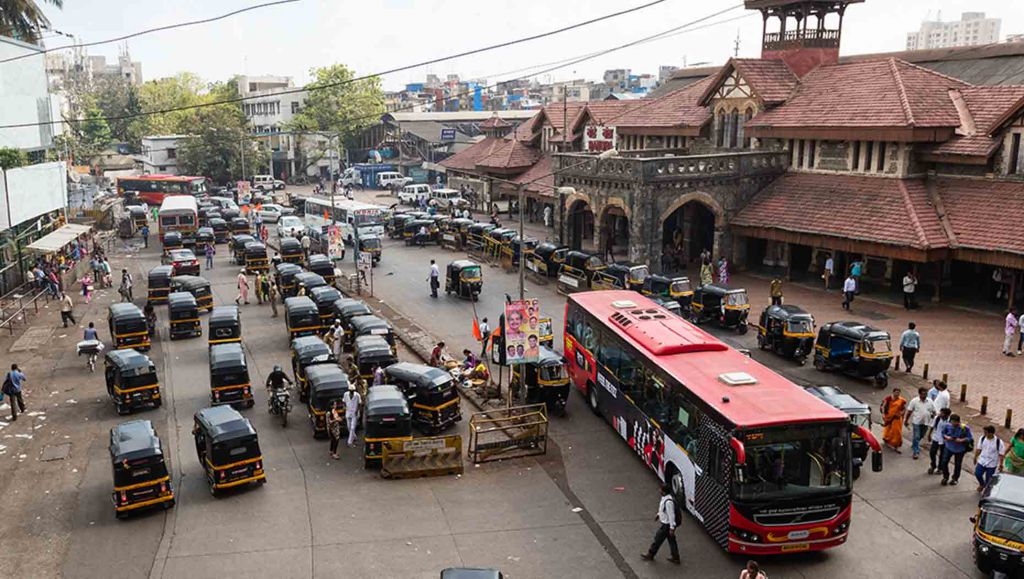Volvo Group joins hands with WEF Road Safety Partnership in India


The Road Safety Manifesto, gives a priority list of road safety principles and polices. Stakeholders endorsed the manifesto at a Road Safety Discussion in this year World Economic Forum in Davos, where Manpreet Singh Badal, Minister of Finance and Planning of Punjab was a key note speaker representing the government perspective from India.
On the call of FIA and WEF, representatives of the business community, including Volvo Group, as well as the World Bank, the United Nations, International Road Federation, the International Federation of Red Cross, the Global Road Safety Partnership and local NGOs, such as the SaveLife Foundation started a dialogue to identify new ways of cooperation in support of government efforts to improve road safety in India.
This new public-private partnership is expected to set an example for accelerating results. Niklas Gustafsson, Chief Sustainability Officer, Volvo Group present at the event commented, “Safety is an integral part of sustainability and driving prosperity.
A region cannot have sustainable development and achieve social prosperity when crippled by the effects of road accidents and injuries: which is a social issue, a health issue, a transport issue as well as an issue of poverty & equality – as traffic safety often disproportionately affects the lower income people, especially women and the young.”
1.35 million People die and 50 million are seriously injured on the world’s roads every year. Despite the growing efforts to improve road safety, the results are disappointing and there is a need for an urgent change.
While building on the experience of the Decade of Action and on a growing number of best practices, new ways of cooperation among key stakeholders could help turn the tide and move out of the current deadlock.
Leap-frogging in road safety is more than ever feasible today as a result of technological innovations brought around by the 4th industrial revolution, provided there is effective collaboration between authorities, industries and the civil society.
The joint Global Road Safety Initiative of the World Economic Forum (WEF) and the Fédération Internationale de l’Automobile (FIA) seeks to address this global challenge, with particular emphasis on low- and middle-income countries.
“Safety is an integral part of sustainability and driving prosperity”.
The initiative has commenced in 2018 with a pilot project to establish a Road Safety Partnership for India (RSPI), which holds a sad record in world’s road traffic fatalities.
Jean Todt, FIA President and UN Secretary-General’s Special Envoy for Road Safety has presented the GRSI-RSPI project to the Mobility Stewards and to the Automotive Governors, during the Annual Meetings of the World Economic Forum in Davos.
Furthermore, on 23rd January, the Federation International de l’Automobile in cooperation with the World Economic Forum organised a road safety discussion. The thematic focus of the session was to assess what impacts can offer on the ground the 4th Industrial Revolution for road safety on the short, medium and long terms.
In his opening statement, Jean Todt said that this high toll of road mobility on human lives is unacceptable”, raised the question if the current governance structure of road safety is adequate for a transformational change”.
He also underlined that new tools are needed and welcomed the cooperation with WEF, the Indian government, the private sector and civil society to deliver concrete, tangible results.
On behalf of WEF, in his opening statement, Christoph Wolff, Head of Future Mobility Systems, gave the broader context of sustainable mobility. He also linked the joint FIA-WEF road safety project with other activities of the Mobility Stewards and the Automotive Governors.
Keynote speaker, Manpreet Singh Badal, Minister of Finance and Planning of Punjab, elaborated on the government perspectives and gave examples where political leadership can lead to better safety on the roads.
Funding is one of the challenges that the Punjab government addressed by setting up a Road Safety Fund where revenues for penalties and violation fees go and reinvested in safety.Kamal Bali, President & MD, Volvo Group in India remarked; “We welcome the Road Safety Partnership project for India. India is our home base and safety is a priority.
We are keen to extend our expertise as well as collaborate with stakeholders in the country to help improve and support the government initiatives towards improved transport safety”